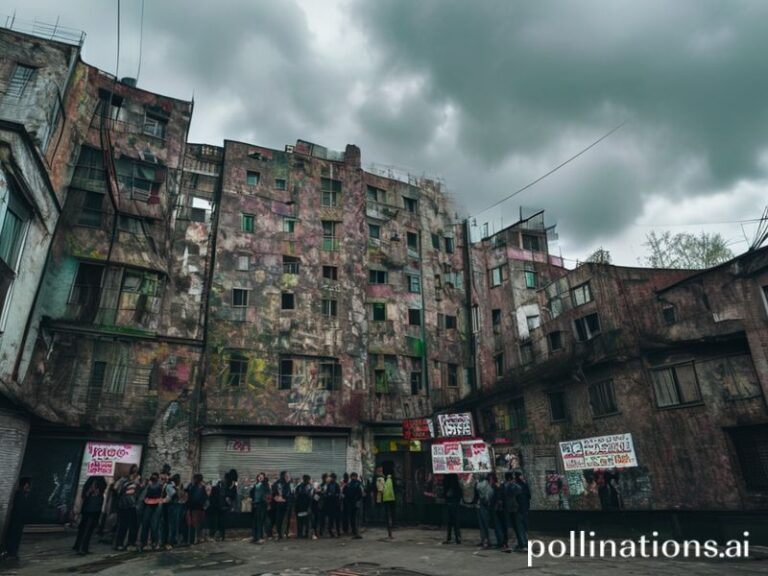Global Talent Hunt: How High-Potential Programs Became the World’s Favorite Distraction from Actual Problems
**The Global Talent Lottery: Why “High Potential” Is the New International Currency**
In a world where cryptocurrency crashes faster than a Russian oligarch’s yacht budget and democracy feels as stable as a Jenga tower in an earthquake, humanity has latched onto its latest obsession: identifying and cultivating “high potential” individuals. Because apparently, betting on human excellence is somehow less risky than betting on, well, literally anything else.
From Singapore to Silicon Valley, from Lagos to London, the hunt for the next Einstein-meets-Jobs hybrid has become the international community’s favorite pastime—right after pretending climate change will solve itself and that the global economy isn’t held together by duct tape and central bank prayers. These high-potential episodes, as corporate HR departments breathlessly call them, have spawned an entire ecosystem of talent scouts, potential-spotting algorithms, and leadership development programs that cost more than the GDP of some small island nations.
The irony, of course, is delicious. While billions struggle with basic literacy and numeracy, we’re investing astronomical sums in programs designed to optimize the already optimized. China’s “Thousand Talents Plan” dangles million-yuan carrots before international researchers, while Europe’s Horizon projects throw billions at anyone who can convincingly promise to revolutionize something—anything, really—as long as it looks good in a grant application. Meanwhile, African nations watch their brightest minds lured away by Western promises of unlimited research budgets and functioning infrastructure, creating a brain drain that makes the 19th-century resource extraction look positively amateur.
The global implications are staggering. We’re essentially creating a new aristocracy—not of birth, but of standardized test scores and the ability to sound profound while PowerPoint-ing. These anointed high-potentials float effortlessly between international conferences, collecting accolades like Pokemon cards while the rest of humanity wonders whether they’ll afford rent next month. The United Nations has even gotten in on the act, launching various “Young Leaders” programs that identify exceptional youth, presumably so they can properly network before inheriting our burning planet.
What’s particularly amusing is how every nation simultaneously believes it’s uniquely positioned to cultivate this talent while also complaining about talent shortages. The Americans blame their education system, the Europeans blame their bureaucracy, the Asians blame their rigid hierarchies, and everyone blames immigration restrictions—except when they’re using those same restrictions to hoard their own high-potentials like dragons sitting on gold.
The darker truth beneath this global talent fetish is that we’ve essentially given up on fixing systemic problems. Why invest in universal quality education when you can cherry-pick the outliers? Why address structural inequality when you can create exclusive programs for those who’ve already beaten the odds? It’s efficiency taken to its logical, dystopian conclusion: optimize the top 1% and hope their innovations somehow trickle down to the rest—a theory that works about as well as its economic counterpart.
As we hurtle toward an uncertain future populated by AI, climate chaos, and the continued existence of TikTok, our obsession with high-potential episodes reveals more about our anxieties than our aspirations. We’re desperately searching for saviors because we’ve lost faith in collective action. We’ve turned human potential into another speculative market, complete with its own bubble dynamics and crash potential.
The joke, ultimately, is on us. While we’re busy identifying and cultivating the next generation of world-changers, we might want to remember that potential is just that—potential. It requires opportunity, resources, and a functioning civilization to actualize. But sure, let’s keep hosting international conferences about talent development while the actual planet burns. After all, nothing says “high potential” quite like solving imaginary problems in style while real ones multiply like rabbits on espresso.







